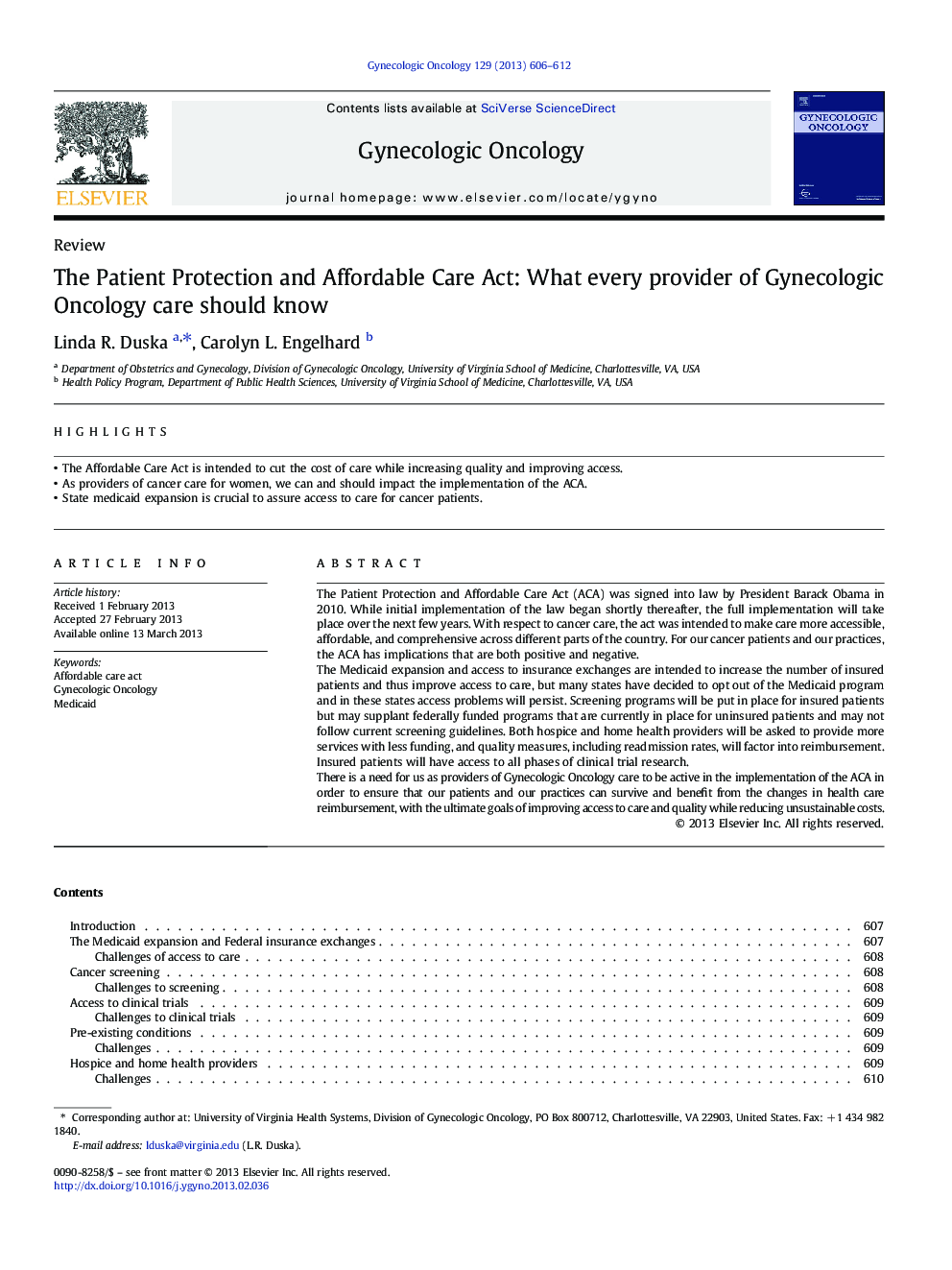| Article ID | Journal | Published Year | Pages | File Type |
|---|---|---|---|---|
| 6185838 | Gynecologic Oncology | 2013 | 7 Pages |
â¢The Affordable Care Act is intended to cut the cost of care while increasing quality and improving access.â¢As providers of cancer care for women, we can and should impact the implementation of the ACA.â¢State medicaid expansion is crucial to assure access to care for cancer patients.
The Patient Protection and Affordable Care Act (ACA) was signed into law by President Barack Obama in 2010. While initial implementation of the law began shortly thereafter, the full implementation will take place over the next few years. With respect to cancer care, the act was intended to make care more accessible, affordable, and comprehensive across different parts of the country. For our cancer patients and our practices, the ACA has implications that are both positive and negative.The Medicaid expansion and access to insurance exchanges are intended to increase the number of insured patients and thus improve access to care, but many states have decided to opt out of the Medicaid program and in these states access problems will persist. Screening programs will be put in place for insured patients but may supplant federally funded programs that are currently in place for uninsured patients and may not follow current screening guidelines. Both hospice and home health providers will be asked to provide more services with less funding, and quality measures, including readmission rates, will factor into reimbursement. Insured patients will have access to all phases of clinical trial research.There is a need for us as providers of Gynecologic Oncology care to be active in the implementation of the ACA in order to ensure that our patients and our practices can survive and benefit from the changes in health care reimbursement, with the ultimate goals of improving access to care and quality while reducing unsustainable costs.
